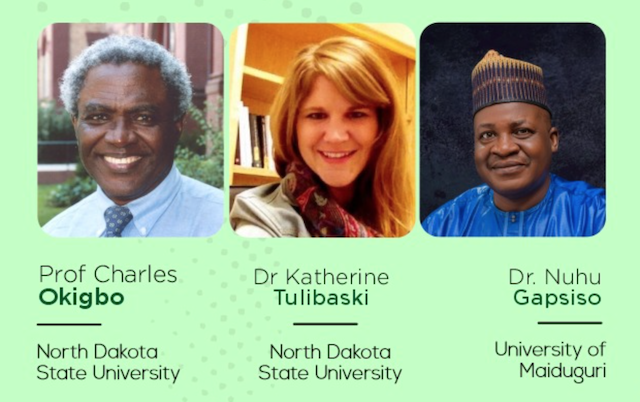By Owei Lakemfa.
THE victims of the coronavirus, COVID-19, are not only those who contracted it. Not just those who lay helpless in hospitals, homes and isolation centres hoping to survive or waiting for death. They are not only the doctors and nurses, pharmacists and technologists, radiographers and medical workers who in a universal war of life or death, led humanity while the generals hide behind their white overalls.
The victims are not just the babies delivered into the world only to be caught by the virus. They are not just the innocent who flocked to religious centres believing in clerics – overfed with tithes, offerings, contributions and gifts – who assured the faithful that as God’s children, they will not catch the virus, nor would the virus dare catch them. These are the innocent who believe that if it is their destiny to be infected, there is nothing they can do about it.
The victims are not just the street children of Nigeria who are captured by belching state governors and expelled to various parts of the country in massive forced movements, spreading the virus. The victims are not only the citizens fooled into beliefs by leaders who speak before they think, assuring them the deadly virus is a mere flu that will disappear. The victims are not just those swayed by comedians occupying presidential villas and the media space to believe that the virus – which has frightened the toughest of the military to abandon deadly warships – is ‘Made in China, and what is made in China does not last.’
The victims are not just the innocent forced to go to work so the wheels of capitalism can be oiled, only to return home, bearing the virus for their families. The victims include school children lured back too early to the classrooms and made to host the virus in their young bodies and infected lungs. They include those encouraged to flood the beaches to catch sunlight, catch fun and end up catching the virus.
The orphans are not only the children of some of the over 350,000 persons with whom we ushered in the 2020 New Year but who will never witness another year. They include some of the current 5.5 million infected persons who despite surviving COVID-19, will bear the after effects throughout their lives.
The orphans include business owners whose investments went down the drain, traders who can no longer trade and workers who became unemployed. They include pilots and flight engineers, beautiful air hostesses and handsome flight attendants who have been grounded across the world, and may never fly again even if some of the aircraft return to the air.
But, sure there is money to be made, or being made from COVID-19; officials who profit from its corruption, politicians making millions from COVID-19 palliatives for the vulnerable and very poor. Religious clerics who put the fear of God in people making them part with their wealth or transfer their money into bottomless funds. This is nothing new for there were clerics even in Biblical times who “sold the righteous for silver and the needy for a pair of shoes” (Amos 2:6)
However, profiting from the virus is allowable in a dog-eat-dog system. More so when China, the fall guy, is very rich. Its GDP in 2019 was $14.3 trillion and its natural resources is estimated at $23 trillion. So people in a number of countries, from United States to India, Germany to Nigeria, are falling on themselves to sue China for huge sums based on their claimed collapse of businesses and income loss.
These potentially lucrative suits are based on issues such as China allegedly manufacturing the virus, being its natural source, not being proactive enough to stop its spread, not giving timely warning to other countries.
I am disappointed that the Nigerians suing can insult 200 million people by asking for a meagre $200 billion. So I plan to meet them and ask they jack up the amount to a minimum trillion dollars which will be more befitting. If they agree, I am sure I will get 10 percent of the increase and never work again in my life.
So, the Nigeria case is very dear to my heart and I like the boldness. They simply wrote China telling it to pay them the $200 billion by June 1, 2020 or: “We shall have no option but to commence appropriate legal action against your country in Nigeria.” It is like someone holding a gun to your head and saying your money or legal suit.
I am afraid that these claimants may make us lose this suit because the basis of their claims is built on unverified rumours and the rickety foundation that it is the alleged activities of the Wuhan Institute of Virology in China that produced COVID-19. They make Nigeria a laughing stock because there is no such research or investigation with such conclusion. Secondly, there is no scientific evidence anywhere that COVID-19 is an artificial virus.
Thirdly, it insults the intelligence of Nigerians, an highly educated and quite knowledgeable people, that a group of otherwise literate Nigerians would parrot the unintelligent gibberish by President Donald Trump that COVID-19 is a “Chinese virus”.
President Trump played that card when it was assumed that the Wuhan case which occurred at the close of December 2019 was the earliest in the world, therefore, the virus started in China. However, French scientists have since discovered that the perplexing case of Amirouche Hammar, a fishmonger in Paris who fell ill in November 2019, was actually COVID-19.
Yves Cohen, head of resuscitation at the Avicenne and Jean Verdier hospitals who led the research into old samples and with improved testing kits, discovered that Hammar was COVID-19 positive. Cohen’s research was published in the International Journal of Antimicrobial Agents. Mr. Hammar himself told the French BFM Television he was surprised when doctors informed him that what was thought as flu in November was actually COVID-19.
The Mayor of Belleville, New Jersey, United States, Michael Melham who fell sick in November 2019 with COVID-19 symptoms said his doctor assumed he had flu, but now knows it was COVID-19.
The American Newsweek Magazine in its April 17, 2020 issue quoting Geneticist Peter Forster, from the University of Cambridge who is leading a team of international researchers investigating the historical processes of COVID-19, wrote that: “The coronavirus outbreak could have started as early as mid-September (2019) and the Chinese city of Wuhan may not be where it began…”
The new findings that point to earlier sources of COVID-19 may have rendered the court cases against China a nullity and those who hope to benefit from them may have become a distinct group of coronavirus orphans.





